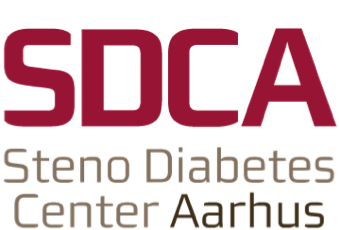Intro Reproducible Research in R
An introductory workshop on modern data analyses and workflows
Welcome!
Reproducibility and open scientific practices are increasingly being requested or required of scientists and researchers, but training on these practices has not kept pace. This 3-day workshop intends to help bridge that gap and covers the fundamentals and workflow of data analysis in R.
The workshop is a hands-on introduction to doing doing research that is reproducible by using R, RStudio, Quarto, Git, and GitHub. It is designed for doing participatory live-typing, where the teacher demonstrates the tasks on their computer connected to a projector while learners type along on their own computer. The workshop also includes reading tasks, discussion activities, hands-on exercises, and a group project.
This website contains all of the material for the workshop, including readings, exercises, presentations, live-typing material, and images. It is structured as a book, with “chapters” as sessions, in order of appearance. We make heavy use of the website throughout the workshop where “type-along” sessions almost identically follow the material on the website (with slight modifications for time or more detailed explanations).
Check out the overview section of the workshop, starting with the 1 Syllabus.
If you plan on attending the workshop, please make sure to complete the pre-workshop tasks in 5 Overview to get set up and ready for the workshop. The pre-workshop tasks include a survey that you need to fill out before the workshop starts.
Target audiences
This website and its content are targeted to three groups:
- For the learners to use during the workshop, both to follow along and also to use as a reference after the workshop ends. A more detailed description of who the learner is in 2 Is this for you?.
- For the teachers to use as a guide for when they do the type-along sessions.
- For those who are interested in teaching, who may not have much experience or may not know where to start, to use this website as a guide to running and teaching their own workshops.
Re-use and licensing
The workshop material is licensed under the Creative Commons Attribution 4.0 License, so the material can be used, re-used, and modified, as long as there is attribution to this source. Check out the ‘For teachers’ section in Appendix E — For teachers for more details and tips on using this material for teaching.
Contributing
Want to contribute to this workshop? Look through our CONTRIBUTING page for contribution guidelines on how to get started.
Contributors
These are the people who have contributed by submitting changes through pull requests 🎉
@lwjohnst86, @hchats, @MaleneRevsbech, @helenejuel, @AndersAskeland, @danielwitte, @joelostblom, @LuisMLealGarza, @MarieAnneberg
How the website is made
The workshop material is created using Quarto to write the material and create the book format, GitHub to host the Git repository of the material, and GitHub Actions with Netlify to build and host the website. The original source material for this workshop is found on the r-cubed-intro GitHub repository.
Acknowledgments
There were many sources of inspiration when creating this workshop, as well as subsequent modifications. Here is a list of some of these sources.
- The Aarhus University CRU sessions on project management, data management and wrangling, intermediate dplyr and tidyr usage, data visualization, and R Markdown.
- A Git session, given for the UofTCoders.
- The UofTCoders Intro to R course for Ecology students.
Content from multiple sources was used as inspiration for this workshop, including the R for Data Science book and the Fundamentals of Data Visualization.
The Danish Diabetes and Endocrinology Academy has hosted, organized, and sponsored running this workshop to researchers in Denmark versions multiple times. A huge thanks to them for their involvement, support, and sponsorship! Both Steno Diabetes Center Aarhus and Aarhus University are employers of Luke Johnston and Daniel Witte (the initial founders and creators).





